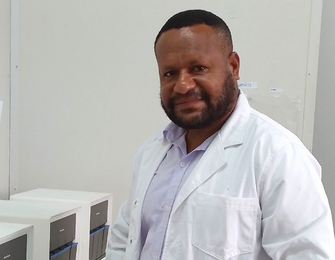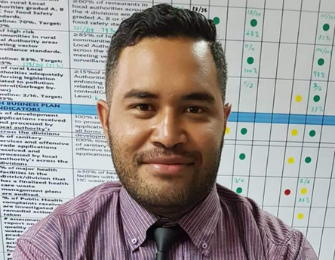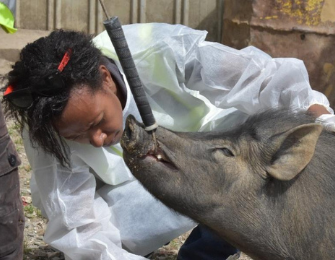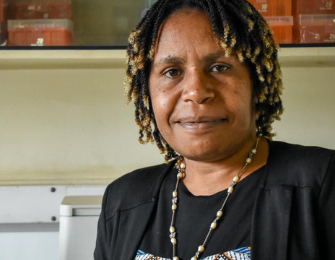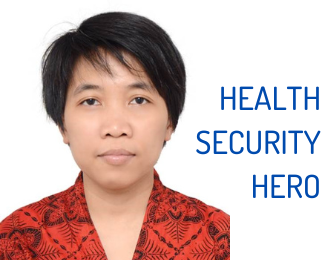
Dr Probandari is a chief investigator on the PINTAR project funded under the Health Security Initiative for the Indo-Pacific in 2018. This project seeks to improve the use of antibiotics by private drug sellers (PDS) in Indonesia.
As the largest country in the region with around 258 million people, most of whom obtain their antibiotics without prescription from PDS, Indonesia has a major role to play in addressing the inappropriate use of antibiotics and curtailing the threat of Antimicrobial Resistance. A key output of this research will be an intervention collaboratively designed by key stakeholders, based on a careful analysis of the current context and drivers of antibiotic dispensing by PDS in Indonesia.
Ari plays a key role in working with local partners from community, industry and government including the National AMR Taskforce, to ensure the feasibility and policy-relevance of this research. Over the life-cycle of this project, Ari and her team are responsible for leading a series of stakeholder workshops to understand the behaviour and incentives of private drug sellers and community preferences for these providers.
She also plays a key role in building local research capacity through for example the direct training of two Indonesian Research Fellows who will gain much needed expertise in health systems research. Ari understands the true value of partnerships and her expertise in supporting stakeholders to affect both the research process and outcomes is a major asset to this study.
What drew you to work in health security?
I’ve always been interested in operational and implementation research that can help policymakers and program implementers deliver better quality disease-control programs. It’s really important that strategies are informed and based on evidence from research, and this kind of research can help improve programs and make them more effective.
What goals did you have then, and have they changed between when you set out and now?
I have now been doing research on tuberculosis control for more than 13 years. The research I’ve done has given me really valuable experience and insights, and I’ve always aimed to provide evidence that can help implementers of disease control programs. One of my first major projects aimed to help maintain the quality of clinical management of tuberculosis services in Indonesia’s hospitals. The project looked at public-private collaborations for tuberculosis control in Indonesian hospitals. it became clear that many collaborators assumed good tuberculosis care was being delivered to hospital patients, but this was not evidence-based and we needed to look at this more closely through research.
A key recommendation from my research was tuberculosis needed to be included in current quality assessment processes in Indonesia, such as the National Hospital accreditation program. This recommendation was approved by the Ministry of Health Republic of Indonesia and has led to more rigorous standards being applied to the treatment and management of tuberculosis.
I am currently involved with a project funded through the Stronger Systems for Health Security program funded by the Centre for Health Security. We are doing research to look at the use of antibiotics sold by private drug sellers in Indonesia. Many people in Indonesia obtain their antibiotics without prescription and this leads to inappropriate use of antibiotics and threats of antimicrobial resistance (AMR).
The research involves the community, industry and government (including the National AMR Taskforce) and our aim, consistent with my previous work, is to make sure the findings are relevant for a policy context.
How does your work impact people’s lives?
It’s important to me that research leads to impact in national health policies, and this has an impact on implementation and the operational level of health services. For the people of Indonesia, this also means to access to quality health services. We can’t just stop there; there needs to be ongoing research to measure the impact of services and treatments at a program level, and also research into how our programs and services affect people and their communities.
What are some of the challenges you face in your work?
It’s one thing to conduct good research and a different challenge to disseminate the findings. Implementation and operational research requires a specific set of skills, and a special approach when it comes to engaging with policymakers, program implementers. Disseminating research needs real persistence and requires good communications skills. For the PINTAR project, we have a group of about 20 stakeholders - from community, government and industry - who are working with us from start to finish. Managing such a diverse group can be challenging but also essential for making a difference.
What is most rewarding about your work?
The biggest reward is when my research leads to change. When program implementers use our research findings to improve the services and deliver higher quality services, I know that leads to change for the people of Indonesia and makes my work worthwhile. With the PINTAR project, I really hope the findings and recommendations will be adopted by the government to improve policies and programs that prevent and control antibiotics resistance.

